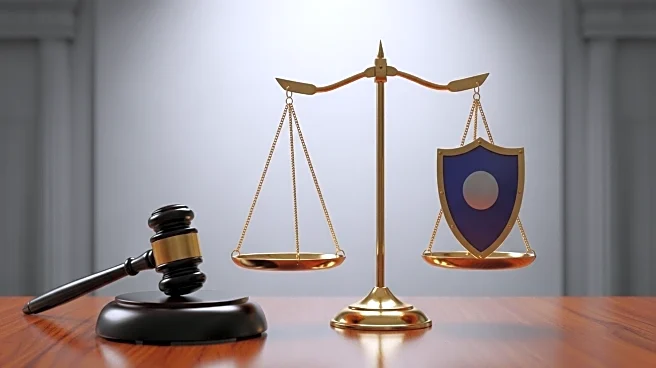What is the story about?
What's Happening?
Democratic lawmakers forced a vote in the Republican-led Senate on a resolution aimed at limiting President Trump's war powers, particularly concerning military strikes on suspected drug boats in the Caribbean. Although the effort did not succeed, it demonstrated emerging bipartisan support for reevaluating presidential military authority. The vote reflects ongoing debates about executive power and the need for congressional oversight in military operations.
Why It's Important?
The push for a vote highlights concerns about unchecked presidential authority in military matters, emphasizing the role of Congress in overseeing such actions. It underscores the importance of checks and balances in U.S. governance, potentially influencing future legislative efforts to redefine war powers. The initiative may resonate with constituents who advocate for greater transparency and accountability in military decisions, impacting political dynamics and public discourse.
What's Next?
Despite the vote's failure, Democratic lawmakers may continue to seek support for similar resolutions, aiming to build bipartisan consensus. The issue could lead to further legislative proposals and discussions about the scope of presidential military authority. Stakeholders, including political leaders and advocacy groups, may engage in public campaigns to raise awareness and influence policy changes. The debate may also affect upcoming elections, as candidates address national security and executive power issues.
















